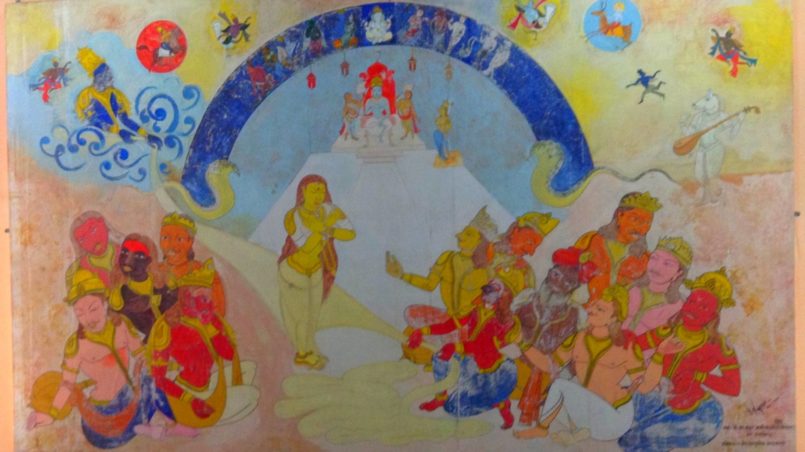Draupadi: A Feminist

In this article, I would like to introduce you to a remarkable and immensely interesting female character from one of the greatest magnum opuses of all times – Mahabharata. Her name is Draupadi, and she was the wife of the five Pandava princes in the outstanding epic, Mahabharata.
In my earlier article, I provided a glimpse of the inclination amongst most Indians and especially traditionalists to prefer Sita over Draupadi because of the former’s compliant disposition. In this article, the reasons for such preference will become comprehensible.
Mahabharata is an intricately knitted saga of a bloody war and noble thoughts, vengeance and repentance, incredible courage and cowardice, guile and principles, an all consuming hatred and fiery love, and especially of recurring victory and defeat. The character of Draupadi is continuously shaped by this emotional roller coaster and adverse situations.
Draupadi, like Athena, emerges from a sacrificial fire, called yajna in Indian tradition, as a fully grown and extremely beautiful woman. It is believed that Draupadi’s beauty enthralled all men as her beauty surpassed that of all other women. She is the adopted daughter of King Drupada and was married to Arjuna (the third amongst the Pandava brothers) in a svayamvara (a contest in which the most eligible man marries the princess after proving himself by performing some extraordinary feat).
The polyandrous arrangement into which Draupadi becomes entangled was bestowed on her by fate and she did not enter into it by her own free will. It was Kunti’s (Pandava’s mother) wish as well as an expedient decision based on the realization that a fall out amongst the five brothers over possession of Draupadi could not be completely ruled out. Moreover, at that time, according to the rules of Vedas, if a younger brother got married before his older brother, this was considered a sin.
Even though Draupadi maintains the appearance of a good wife, she is not a conventional wife in any sense.
The most interesting episode that brings out the true character of Draupadi as a feminist is during the famous but fateful game of dice between her husband, Yudhisthira and the Kauravas. In this game of dice, her husband puts Draupadi up as a bet and loses her. She is dragged into the assembly by one of the Kauravas, who then proceeds to strip the garments from her body. It is believed that her modesty was saved by supernatural intervention.
However, Draupadi does not concede to the horrendous humiliation she suffered in that assembly. Instead she vents out her anger and disappointment with her husband and the elderly men sitting in the assembly by questioning their knowledge of rightful and respectful conduct. She does not plea for help but fights for her rights after her enslaved husband loses her in a game of dice and can do nothing to save her from humiliation.
Such a disposition was uncommon for a woman at that period of time. She was a radical and a woman who refused to bow before injustice perpetrated by men on women. Shouldn’t she be regarded as a feminist? And perhaps that is the reason why she is seldom the female character who is used as an example in our Indian society.
Credits
| Image | Title | Author | License |
|---|---|---|---|
 |
Cover-Draupadi | T.sujatha | CC BY-SA 3.0 |
